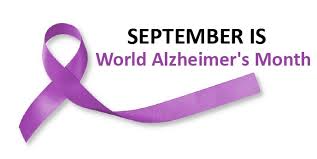Nurses often care for patients with Alzheimer’s disease, and they also help families who are looking for guidance and resources. But many nurses also care for their own family members who have Alzheimer’s disease, and the high amount of energy spent caregiving on the job and at home is often challenging and can leave nurses depleted at home and at work. Designated as World Alzheimer’s Month, the focus on Alzheimer’s disease in September helps call attention to this devastating disease.
Cindy Keith, RN, BS, CDP, owner of M.I.N.D. in Memory Care, and author of “Love, Laughter & Mayhem – Caregiver Survival Manual for Living with a Person with Dementia,”offered some tips to nurses who also act as caregivers to loved ones with Alzheimer’s disease or dementia.
- Realize This Is a Delicate Balancing Act
“This type of caregiving is likely the toughest thing they will ever have to do,” says Keith about nurses who care for family members. “Not only must they balance their jobs with the ‘work’ at home, but they must also be cognizant of the fact that they may be (likely are) running themselves ragged trying to keep all the balls in the air.” Keith advocates for building mental health breaks into your schedule so you can continue to find the energy for so much. “Nurses cannot be a good caregiver when they are running on empty,” she says.
- Accept You Aren’t Superhuman
There is virtually no one who can take on the role of caregiver at work and at home singlehandedly without losing something in the process. “Get others to help,” she says. “Do not be shy about asking for help and then schedule that help in.” If a neighbor offers help, ask them to take the elder for a walk or just sit with your loved one while you go for a walk or run an errand. If you’re able to hire any kind of help, doing that will free up some time, and therefore, energy for your own life.
Keith says looking into resources including Meals on Wheels or something similar can take a big load off a caregiver. Faith communities often have members who drive elders to appointments, cook occasional meals, or offer companionship while you run an errand, catch up on laundry, or just take time for a cup of coffee. When you have others help you, make sure you use some of the time to recharge your own energy. “Just be sure to schedule in some time for yourself to do something you like that will reset your brain,” says Keith. Caregiving is exhausting.
- Gather Information Everywhere
Keith says you’ll find information in all kinds of places and in formats most useful to you. “Join a support group,” says Keith. “So many of my clients have been dragged kicking and screaming to support groups only to find they are a lifeline for them—and some continue to go to help others even after their loved one has passed on.” Sometimes a group may not be the right fit—for example you may want a group where the majority of the members are at a similar stage as you. If you find one group isn’t helping you, find another one and give it at least three tries, she says.
Keith also says the Alzheimer’s Foundation of America has excellent information for caregivers and there are many books that offer targeted information. Keith wrote her first book, “Love, Laughter & Mayhem – Caregiver Survival Manual for Living with a Person with Dementia,” to help answer some common caregiver questions. She also says “Elder Rage or Take My Father…Please!” is helpful for if a loved one is abusive or combative. “Creating Moments of Joy” by Jolene Brackey is also one she recommends.
- Take Care of Yourself
The constant demands of caregiving are stressful and can lead to burnout. Your level of stress has nothing to do with your love of the person you are caring for, it has to do with your need to take care of your own physical and mental health. “Don’t be afraid to seek professional help for yourself or your loved one,” says Keith. “This is a life situation that can quickly become a crisis and the more you know about it, the better prepared you will be when. not if, the crisis hits.”
- WOC Nurses Week Highlights Specialty - April 16, 2024
- Honoring Radiology Nurses Day on April 12 - April 12, 2024
- Travel Offers New Career Possibilities - April 8, 2024



